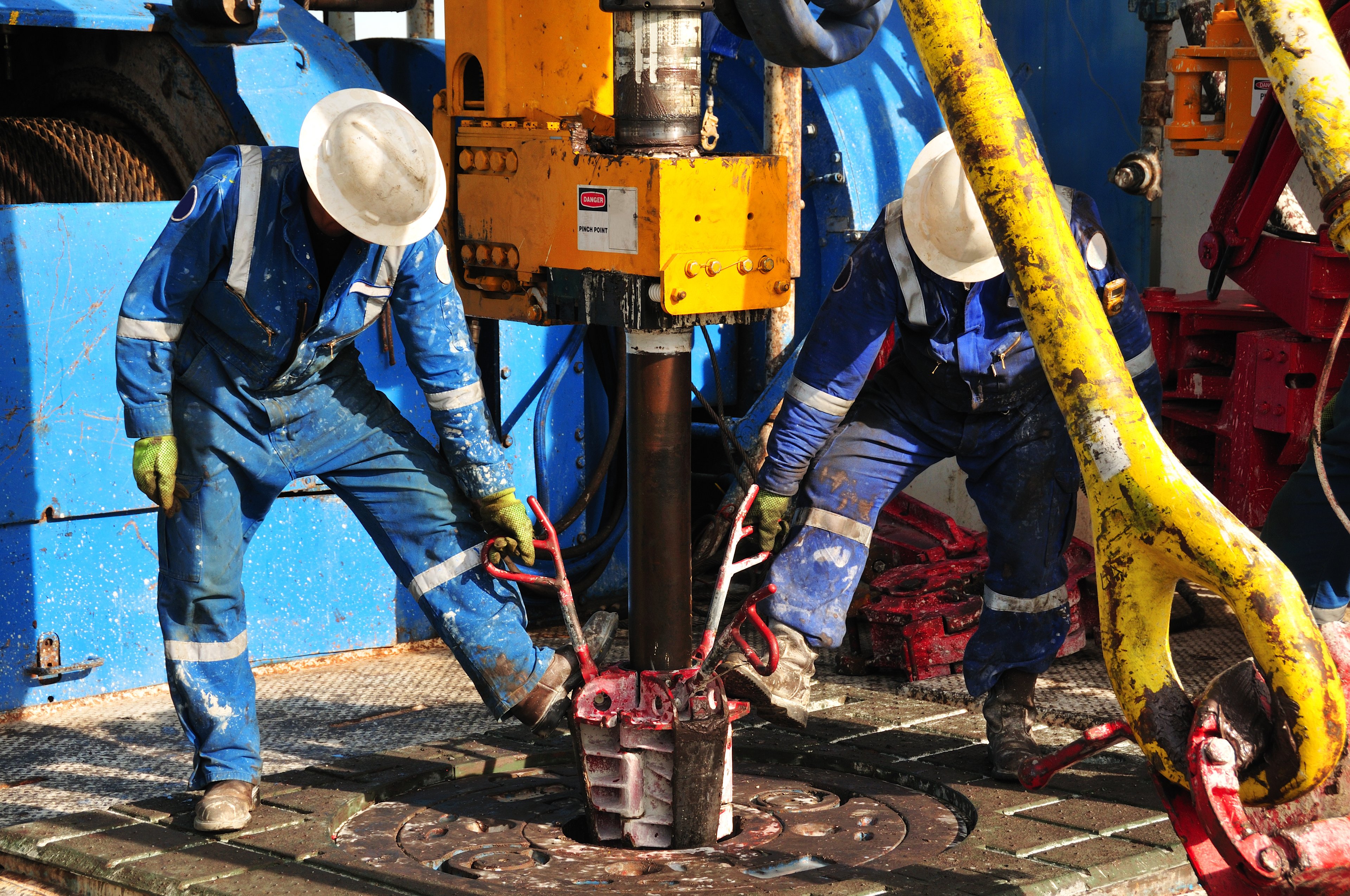Last year proved to be another challenging one in the oil industry. While crude prices initially rallied to their best levels in more than four years, a late swoon wiped away all those gains and then some. Overall, crude prices in the U.S. ended down 19% for the year and were 40% off their peak.
That sell-off in the oil market weighed on most oil stocks last year, though several slumped farther than their peers. The five worst performers among companies in the S&P 500 that primarily produce oil were Diamondback Energy (FANG +2.47%), Concho Resources (CXO +0.00%), Apache (APA +3.15%), Devon Energy (DVN +3.13%), and Newfield Exploration (NFX +0.00%). What's surprising about these subpar performers is that each one made a major move designed to boost shareholder value last year. While those actions backfired in 2018, they could pay big dividends in 2019 if oil prices cooperate.
Check out the latest Devon Energy earnings call transcript.

Image source: Getty Images.
Rattled despite gobbling up more land in the Permian
Diamondback Energy's stock tumbled 26.6% in 2018. That slump came even though the company made several moves to boost shareholder value. For starters, Diamondback took its first step toward rewarding shareholders for their support by initiating a quarterly dividend in mid-February. In addition, it closed several acquisitions last year, including buying rival Energen for $9.2 billion in cash and stock. Those transactions pushed up the company's earnings, cash flow, production, and growth prospects. They also positioned Diamondback to return more money to shareholders in 2019, which it plans to do by increasing its dividend by 50%. While Diamondback Energy's buying binge, when combined with lower oil prices, weighed on its stock last year, the oil producer's acquisitions position it to grow production 28% in 2019 as it increased its flexibility to ramp its activity level up or down depending on oil prices.
A bold bet that hasn't paid off as expected
Concho Resources slumped 31.6% last year. Like Diamondback, that slide came even though the company made several moves geared toward creating value for investors. In late March, Concho sealed a deal to acquire rival RSP Permian for $9.5 billion. While the company paid a premium value for RSP Permian, it believes the deal will pay big dividends down the road. Speaking of dividends, Concho Resources followed in Diamondback's footprints by initiating a shareholder payout in late October. Although Concho's bold acquisition weighed on its stock last year, especially with oil prices crashing, the company estimates that by combining with RSP Permian, it can produce enough cash to grow production at a 25% compound annual rate through 2020 while returning money to investors via its dividend.
Underperforming despite taking the right steps to create value
Apache cratered 37.8% during 2018. While the company didn't make a needle-moving acquisition last year, it did complete a different type of strategic transaction while also returning more cash to shareholders. In August, Apache formed Altus Midstream (ALTM +0.00%) to unlock the value of its midstream assets while creating an entity that can self-fund growth. The deal valued Apache's midstream business at $3.5 billion, with the company holding a more than 70% stake in that entity, positioning it for further upside as Altus expands its footprint.
Apache also resumed its share repurchase program during the third quarter while upping its authorization by 40 million shares, enough to retire about 12% of its outstanding stock. Though those moves buoyed Apache for much of the year, the late shellacking in the oil market, combined with Apache's ho-hum third-quarter results, caused shares to tank toward the end of 2018. However, the company expects big things in 2019 as it sees production hitting the high end of its long-term forecast, and shareholders should also benefit from the value created as Altus Midstream expands and its share repurchase program retires more of its cheaper stock.

Image source: Getty Images.
Burned despite a big-time buyback
Devon Energy's stock plummeted 45.6% last year even though it focused on boosting shareholder value by returning more cash to investors. The company took its initial step in that direction in March, when it unveiled a 33% dividend increase and a $1 billion share repurchase program, which was enough money to retire 6% of its outstanding shares. Devon would go on to expand that buyback to $4 billion -- enough to extinguish 20% of its outstanding stock -- when it sold its midstream assets. That move not only enabled the company to enact an industry-leading repurchase program but it helped reduce debt by 40%. Despite these moves designed to enhance shareholder value, Devon's stock continued sinking last year along with oil prices as well as due to some production issues to start the year and in the third quarter. However, despite those missteps, Devon expects production to grow 17% in 2018, up from 15% initially, and by another 15% to 19% in 2019.
Even a sale couldn't boost this oil stock
Newfield Exploration's stock nosedived 46.6% during 2018. What's shocking about that performance is that it came even though Newfield accepted an all-stock buyout deal from Encana (ECA +1.50%) at a premium to its trading price at the time. While the news initially buoyed Newfield's stock, Encana's shares sold off as investors saw the deal as a reversal of the company's strategy to slim down so that it could maximize the value of its existing assets. That sell-off in Encana's stock, when combined with the plunge in oil prices, weighed on Newfield's shares. Encana believes, though, that the combined company can produce more cash flow at lower oil prices, which is why it intends to bolster its dividend by 25% and its share repurchase authorization from $400 million to $1.5 billion.
From worst to first?
These five oil stocks were the worst performers in their peer group last year because the market didn't like the moves they made in light of crashing oil prices. However, those decisions could pay off spectacularly if crude rebounds again. That's why investors should take a closer look at these oil stocks because they have the potential to go from worst to first if market conditions turn around in 2019.









